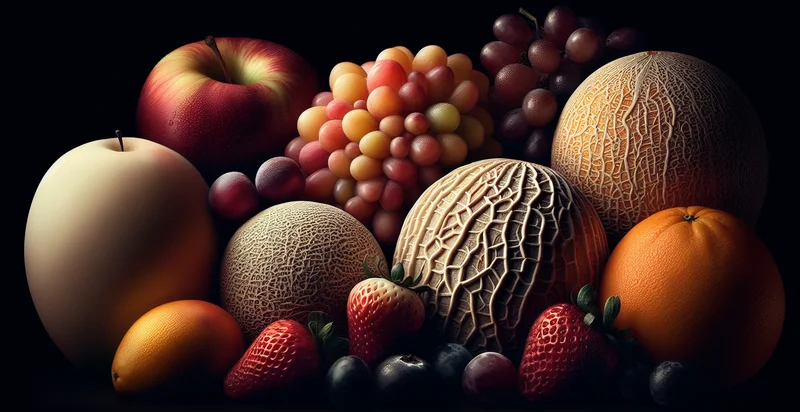Identify fruits by texture
using AI
Below is a free classifier to identify fruits by texture. Just upload your image, and our AI will predict what type of fruit it is based on its texture - in just seconds.

Contact us for API access
Or, use Nyckel to build highly-accurate custom classifiers in just minutes. No PhD required.
Get started
import nyckel
credentials = nyckel.Credentials("YOUR_CLIENT_ID", "YOUR_CLIENT_SECRET")
nyckel.invoke("fruits-by-texture", "your_image_url", credentials)
fetch('https://www.nyckel.com/v1/functions/fruits-by-texture/invoke', {
method: 'POST',
headers: {
'Authorization': 'Bearer ' + 'YOUR_BEARER_TOKEN',
'Content-Type': 'application/json',
},
body: JSON.stringify(
{"data": "your_image_url"}
)
})
.then(response => response.json())
.then(data => console.log(data));
curl -X POST \
-H "Content-Type: application/json" \
-H "Authorization: Bearer YOUR_BEARER_TOKEN" \
-d '{"data": "your_image_url"}' \
https://www.nyckel.com/v1/functions/fruits-by-texture/invoke
How this classifier works
To start, upload your image. Our AI tool will then predict what type of fruit it is based on its texture.
This pretrained image model uses a Nyckel-created dataset and has 15 labels, including Bumpy, Crunchy, Dull, Fibrous, Fuzzy, Grainy, Hard, Pebbly, Prickly and Shiny.
We'll also show a confidence score (the higher the number, the more confident the AI model is around what type of fruit it is based on its texture).
Whether you're just curious or building fruits by texture detection into your application, we hope our classifier proves helpful.
Related Classifiers
Need to identify fruits by texture at scale?
Get API or Zapier access to this classifier for free. It's perfect for:
- Quality Control in Food Processing: The 'fruits by texture' identifier can be used in food processing facilities to automatically assess the quality of fruits based on their texture. This ensures that only fruits meeting the required quality standards are processed further, reducing waste and enhancing product consistency.
- Retail Inventory Management: Grocery stores can implement this function to categorize and manage fruit inventory based on texture-related characteristics. By optimizing display strategies and stock levels, stores can enhance customer experiences and increase sales of textured fruits.
- Food Delivery Services: Meal kit delivery services can leverage the texture identification function to ensure that customers receive fruits that meet specific texture preferences. This personalization can improve customer satisfaction and reduce return rates for unsatisfactory produce.
- Agricultural Research: Researchers studying fruit development and texture can use this function to categorize and analyze different varieties based on their texture profiles. This data can facilitate studies on texture-related traits and breed development for improved fruit quality.
- Smart Kitchen Appliances: Manufacturers of smart kitchen devices can integrate this texture identification technology to provide users with guidance on fruit ripeness and best use cases in recipes. This could enhance cooking experiences by suggesting optimal fruit usage based on texture.
- Health and Nutrition Apps: Mobile applications focused on health and nutrition can utilize the texture identifier to suggest fruits that align with specific dietary needs or preferences. This feature can help users select fruits that provide the desired mouthfeel and nutritional benefits.
- Food Safety Monitoring: The texture classification function can assist in monitoring the safety of fruits by identifying abnormalities that may indicate spoilage or contamination. This proactive approach helps in maintaining food safety standards and preventing foodborne illnesses.


